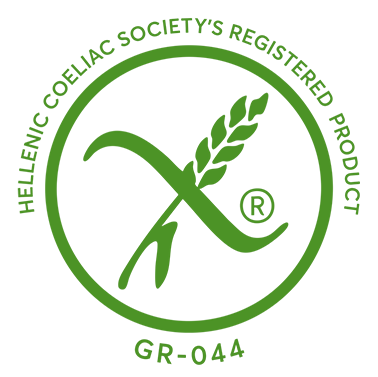RESPONSIBLE CONSUMPTION
For us at PINEIOS BREWERY, Responsible Consumption is a very sensitive issue that is directly related to the safety of our consumers.
One of the oldest products of our culture, beer is a natural product made mainly from water, barley malt, hops, and yeast. According to scientific research, mild consumption of beer is beneficial for health and able to contribute to a healthy lifestyle.
At PINEIOS BREWERY we are committed to the complete information of our consumers so that they can consciously choose when consuming our products.
PINEIOS BREWERY, aware of issues of proper and responsible consumption, applies in its communication the prompt “Enjoy Responsibly”. At the same time, it pledged that the screening of television and radio messages of its products should be focused on hours and shows that do not target minors.
RESPONSIBLE POLITICS
At PINEIOS BREWERY we have developed a philosophy that governs all the marketing actions we apply.
The communications we apply:
- They do NOT overshadow the nature or degree of alcohol in the product.
- They do NOT give too much importance to the strength (alcohol content) of the alcoholic beverage.
- They do NOT imply a possible preference for a particular beverage, due to the greater strength of its alcohol content,
- Consumption of our products can be seen as an enjoyable part of social activity, but it does NOT imply that it can contribute to individual social success or acceptance or to personal popularity.
- We do NOT present our products as a means of removing personal suspensions.
- We do NOT associate consumption with changing moods or solving personal problems.
- We do NOT make the impression that alcoholic beverages can enhance mental ability or improve physical performance.
Source: Carlsberg Group. Marketing Communication Policy
ENJOY RESPONSIBLY
At PINEIOS BREWERY we are very proud of our products and we want our consumers to enjoy them in the best way. Here are some helpful tips for responsible and enjoyable alcohol consumption:
- Avoid excessive occasional alcohol consumption. You can drink every day for a while so as not to give in to occasional and excessive alcohol consumption.
- Never drink beer when driving. The dangers and consequences of drunk driving are clear. The combination of alcohol and driving can cause fatal accidents, criminal prosecution and have serious consequences for the family and social situation. Our recommendation is simple: If you drink, don’t drive. Find someone else to do it.
- Avoid drinking beer during pregnancy or if you are trying to get pregnant. Excessive alcohol consumption can harm your fetus and all medical evidence suggests that it is best not to drink alcohol during pregnancy. In addition, alcohol can adversely affect a woman’s ability to conceive, while excessive consumption in men can reduce sperm health and quality.
- Avoid drinking beer if you are taking medication. As with all alcoholic beverages, beer, when combined with medication, affects the effectiveness of treatment or alters its chemical composition.
- Avoid alcohol while handling machines. In case of abuse, alcohol can slow down the reaction time or lead to unnecessary dangerous actions. It is a good idea to always avoid alcohol while handling machines.
- Consume alcohol usually with friends It is best not to drink alcohol if you are alone. Alcohol can boost your mood. So, if you feel lonely, drinking too much beer will make you feel even more lonely.
- Avoid alcohol if you are attending a sporting event. Do not drink beer while exercising as well as after completing the exercise as the body needs water to replace the lost body fluids.
- If you haven’t consumed beer all week, don’t try to make up for lost time overnight, as this puts your health at risk.
- Eat a little, drink a little. It is never a good idea to drink beer on an empty stomach. Even a small snack helps to slow down the absorption of alcohol by your body.
- Find out the content. The alcohol content of beer varies depending on the product. Most beers contain about 5% of the volume but some beers can contain up to 7% or more. The alcohol content of beer is always listed on the label or in the box, and you should always check it.
- Do not mix beer with other drinks. Consumption of beer is in itself a pleasant moment! Mixing it with other drinks can increase the amount of alcohol in your body.
Always remember that beer is not a drink you can enjoy at any time. Choose the right time according to your schedule. - The enjoyment of beer is associated with meeting friends, celebrations and pleasant moments of fun. Responsible consumption means that you can have fun and enjoy your beer without any risk!
Source: www.carlsberggroup.com: Responsible Consumption
THE FACILITIES OF BYRAS
Beer affects the body in several ways. When beer is consumed, alcohol is absorbed into the bloodstream through the stomach and small intestine and circulates rapidly to all parts of the body. When it reaches the brain, it affects behavior.Some people make them more lively and talkative and others more silent and grumpy. Usually alcohol strengthens the mental state of the person when he starts drinking. It not only affects his inhibitions, but also his physical coordination, reflexes and the ability to make decisions. As a result, people who drink too much are more likely to put themselves at risk, become more aggressive and unstable.
The rate of alcohol absorption is affected by various factors such as how fast you drink and whether you have had a meal before. Consumption of beer in combination with the consumption of a snack or meal slows down the absorption of alcohol from the blood as it happens with the slow consumption of beer or its alternation with water.
As the blood passes through the liver, the alcohol gradually dissolves and is eliminated from the body. Drinking too much alcohol for a long time can increase the pressure and risk of liver disease, stroke and cancer of the mouth and throat.
Alcohol dependence can lead to depression or some more serious mental illness, and excessive beer consumption increases the risk of accidents.
The recommended amount of consumption is up to three glasses of beer 250ml per day for men and up to two glasses of beer 250ml per day for women. Of course, this varies depending on the weight and water content of the body, factors that tend to be higher in men.
Source: www.carlsberggroup.com: Responsible Consumption
THE BENEFITS OF THE EXPERIENCE OF BIRAS CONSUMPTION
Mild beer consumption can be good for your heart.
Coronary heart disease or heart attack is the leading cause of premature death in developed countries. Prevention measures include changing lifestyles, such as adopting a healthy diet and exercising frequently. However, drinking soft drinks, wine and alcohol can also be a part of a healthy lifestyle.
People who drink alcohol (beer, wine or alcohol) in moderation have been shown to be significantly less likely to develop coronary heart disease than those who abstain completely and drink heavily. This is indicated by many studies around the world.
The benefit applies to a wide range of individuals, including high-risk groups, such as those who have a predisposition to cardiovascular disease or diabetes.Blood cholesterol levels:
The mechanism that seems to be responsible for most of the positive results is that the levels of “good cholesterol” (HDL) in the blood increase when alcohol is consumed. High levels of “good cholesterol” appear to be associated with a lower risk of coronary heart disease.Vaccination:
Scientists have shown that alcohol prevents blood clots from forming.Inflammation:
Some researchers have highlighted the anti-inflammatory effect of alcohol and highlighted the multiple indications for atherosclerosis, which leads to heart attacks and is an inflammatory disease.Insulin resistance:
Mild alcohol consumption may be associated with lower insulin resistance levels. Insulin resistance is associated with cardiovascular disease, so it may be an additional mechanism by which alcohol consumption reduces the risk of developing cardiovascular disease.
There are also indications that mild to moderate alcohol consumption may have a protective effect against other cardiovascular diseases, including heart attacks, strokes, etc.Factors that cause complications:
There are, of course, other factors – in addition to what people drink – that affect their health, such as diet, social status, lifestyle, each individual’s attitude toward health, and pre-existing diseases, which – up to one point – environment. It is therefore essential that these factors be taken into account in any research on the health effects of alcohol consumption.In addition, not only the amount of alcohol but also the frequency of consumption should be taken into account. In other words, every time and in what way a person drinks alcohol.
Beer can contribute to a healthy diet!
Beer is made from natural raw materials with high nutritional value, such as barley, cereals, yeast and water, which contribute to a healthy and balanced diet.
Mild beer consumption can provide many vitamins to the body. But it is important to remember that no food alone provides all the vital trace elements our body needs. Thus, beer should always be consumed in moderation and be part of a balanced diet.
Possible Benefits of Natural Beer Ingredients
Antioxidants:
Natural antioxidants are found in fruits, vegetables and grains. However, they are also found in beer and come as ingredients from the dough (barley) and hops. Research has shown that the blood content of antioxidants increases after consuming beer, which means that the antioxidants in beer absorb easily and perhaps more easily than those derived from solid foods. Researchers say that the effect of beer antioxidants is immediate and is associated with a reduced risk of cardiovascular disease. The importance of antioxidants for health lies in the fact that they probably play a role in protecting against cancer, through their action against free radicals.Vitamins:
Like bread, which is also made from cereals, beer is a good source of many vital vitamins. Beer is particularly rich in B-complex vitamins, such as niacin, riboflavin (B2), pyridoxine (B6), folic acid (B9) and cobalamin (B12).Minerals:
The balance of vital minerals in the composition of the beer is satisfactory. The potassium content is relatively high, while the sodium content is low. It contains a little calcium and a lot of magnesium, useful in the protection against gallstones, obstruction of the bile ducts of the upper extremities.Mild beer consumption does not make you fat!
Beer does not contain fat or lipoprotein (cholesterol) and is low in sugar. The calories in beer come mainly from its alcohol content. The caloric value of beer is lower than other beverages, but we tend to drink it in large quantities. The term “life buoy” (fat around the stomach) is associated with obesity in those who drink beer in several parts of Europe. However, this may not be due to beer, but to other consumer characteristics.Lifestyle issue!
You need a balanced diet, regular exercise, moderate drinking and abstinence from smoking. The data show that a healthy lifestyle does not preclude the consumption of beer or other alcoholic beverages, as long as it is done in moderation. Studies are already underway to look at whether some of the potentially beneficial ingredients in foods and beverages – such as beer – can be beneficial to our bodies and help prevent disease.Source: The benefits of mild beer consumption – The Brewers of Europe
23-25 Rue Caroly – B – 1050 Brussels
Tel: +32 (0) 2 672 23 92 + 32 (0) 2 672 23 92 – Fax: +32 (0) 2 660 94 02
e-mail: info@brewersofeurope.org
www.brewersofeurope.org
Greek Brewers Association
Kifissou 102, 122 41 Egaleo
Tel: +30 210 5613452 + 30 210 561345















